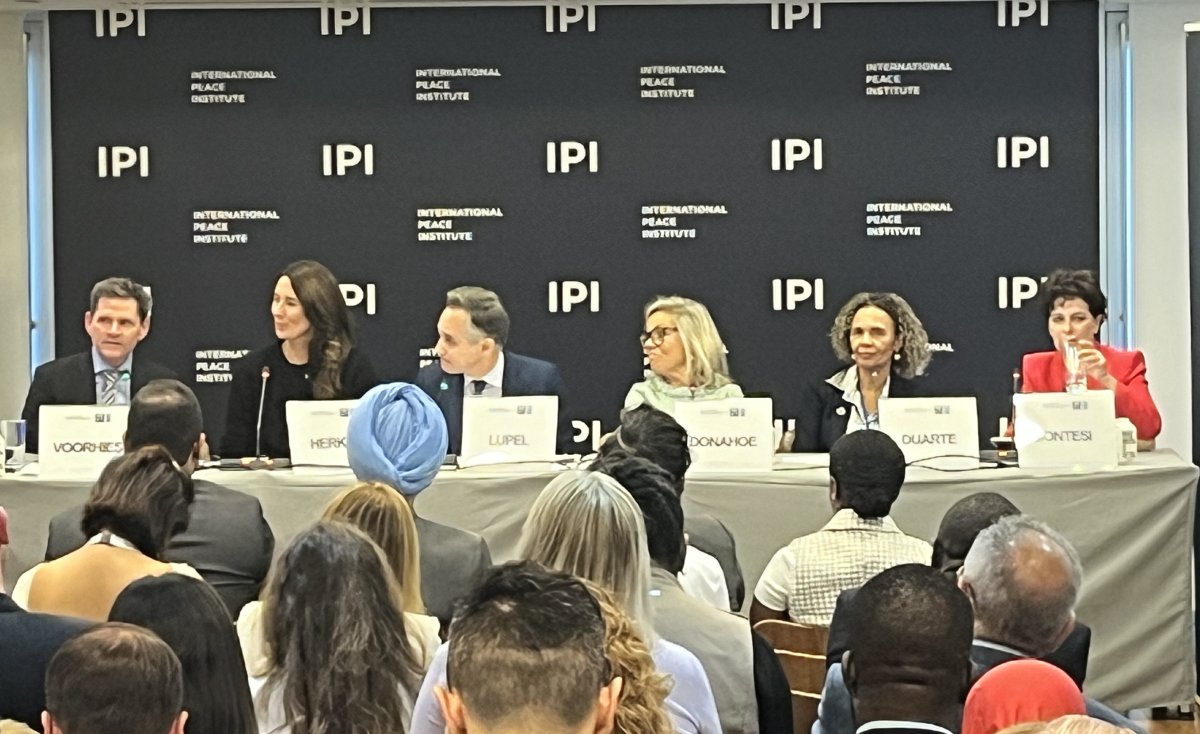For many of us, September means back-to-school, the changing of seasons, and the United Nations General Assembly (UNGA). This gathering of the 193 member states that make up the UN takes place annually in New York City and sets the stage for multilateral discussions on a wide range of topics, bringing collaborators from across the development community together to learn from one another. This September, after sending my kids off to school, I headed to New York for a few days of meetings, convenings, and global events organized around the 79th UNGA.
I returned home inspired, with new connections and ideas about how rigorous measurement and high-quality data, evidence, and insights can help shape a more equitable and just world – especially around high-priority global issues such as climate change, digital transformation, and health.
Climate and nutrition. Agricultural innovations that boost dairy production and prevent millions of cases of stunting, fortified food products that save lives, and affordable supplements that reduce adverse birth outcomes —these were just a few of the groundbreaking solutions shared during Goalkeepers 2024, the annual Bill & Melinda Gates Foundation event celebrating progress on the 2030 Sustainable Development Goals (SDGs).
The 17 Sustainable Development Goals were adopted by UN members in 2015 as a call to action. Together, they highlight the interconnections between health, environment, social, and economic components of global development.
Reduced global health investment and climate change are slowing the significant progress made in improving health outcomes between 2000 and 2020—including around child nutrition. I believe that by learning from past efforts through robust monitoring and evaluation, we can generate evidence-informed insights to help reverse this trend.
Since 2015, Mathematica has worked alongside The Power of Nutrition, a global partnership of investors and implementers committed to improving children’s nutrition. Through a rigorous multiyear assessment of their investment efforts, we’ve uncovered critical insights that have been used to refine their approach to fundraising, co-financing, investing, and advocacy.
We’re also supporting the Rockefeller Foundation with data and evidence to enhance their efforts in helping cities respond to health issues related to climate change. For example, Mathematica’s research has shown that climate preparedness strategies can lead to significant life-saving outcomes, which has, in turn, driven advocacy for increased investment in adaptation.
Digital technology and public infrastructure. More than two-thirds of the 169 UN SDG targets could benefit from digital technologies. This underscores the importance of the newly adopted Global Digital Compact as part of the UN’s Pact for the Future.
The compact is a landmark road map for global governance of digital technology and artificial intelligence that is further strengthened by the launch of the Universal Digital Public Infrastructure Safeguards Framework. While the definition of Digital Public Infrastructure (DPI) continues to evolve, there is consensus that safe, inclusive DPI is essential for advancing progress on the SDGs and ensuring that technology benefits everyone.
Generally, DPI refers to the digital systems and standards that help drive development, including digital identity, digital payment, and data exchange systems.
However, to ensure sustained investment in DPI, rigorous, real-time, quantifiable evidence proving its value is critical. Mathematica looks forward to collaborating with country governments and DPI stakeholders to create a harmonized set of economic and social impact measures that can guide and justify essential DPI investment.

Panelists discuss the importance of safe and inclusive DPI during an event at the International Peace Institute.
Source: Jeff Bernson
Health and humanitarian needs. “What’s working?” This was the question at the center of the of the 2024 Clinton Global Initiative meeting. Speakers shared the success they’ve seen in advancing health equity for all through vaccine access and disease elimination and panelists discussed strategies to direct resources to communities experiencing humanitarian crises.
Mathematica is uniquely positioned to help visionary global health and development clients use high-quality data, evidence, and insights to demonstrate what’s working—and identify areas for improvement—in their efforts to drive global impact. For instance, we recently published a report outlining 30 action-oriented recommendations for funders and implementing partners to strengthen disability inclusion in humanitarian programming, ensuring that those most exposed to the severe impacts of emergencies are not excluded from critical response and recovery efforts.
Achieving an equitable and just world is no small task, but after witnessing the energy, commitment, and innovation in New York, I’m confident that real, substantive progress is within reach. Mathematica is fully committed to being a driving force in that journey.



